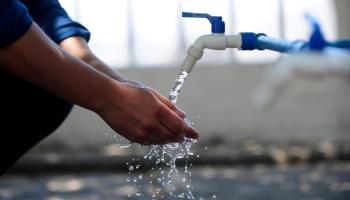
The Costa Rican Institute of Aqueducts and Sewers (AyA) announced on August 21st that it will suspend water service cuts due to delay payment until September, to contain the economic impact of the COVID-19 Pandemic on households.
“The institution joins government effort to reinforce actions necessary to safeguard the common welfare and public health, particularly when it comes to access to basic water service since it translates into a vital element to combat COVID-19 “, said the institution’s spokesperson, Wilberth Quesada.
The guideline carries out an extension to this measure, which has been applied since the beginning of the Pandemic in April. Since then, water cuts for late payment have been suspended.
Even so, AyA asked users to pay on time if they have the means to do so since this “is essential to maintain coverage of 93% of drinking water in Costa Rica.” The institution also asked past-due users to contact the institution before September 15 to formalize their situation, to avoid the accumulation of pending debt. The Institute will allow users to make payment agreements for debts from March, April, May, and June, which can be negotiated until December to avoid collecting fines.
These arrangements can be requested by e-mail [email protected]. The requirements to request them and that must be included in the mail are name, NIS number, province, canton, identification number, or valid identity document and a photograph of the same. Similarly, users in general, if they have questions or queries, can preferably process them by email [email protected] or by calling 800 REPORTE (800-7376783).

The Pandemic, however, has had an impact on the institution’s finances, which in April assured that it foresees a deficit of up to ₡ 15 billion by the end of the year. AyA’s monthly income was reduced by up to 15% at that time.
“It is a fact that we are not going to recover all the debt. It would be necessary to see when it will be possible to cut the water service again. That will be the strongest lever. If that issue is delayed in time, there is going to be an increase (in impact), “AyA general manager Manuel Salas said.
Not only the Pandemic impacted the finances of the institution, but also drought at the beginning of the year, which – due to the limited availability of water – reduced the consumption of the vital liquid.

